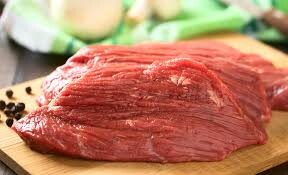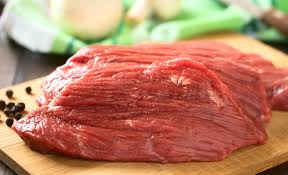
Mato Grosso, Brazil
How is it produced?
Brazilian Beef is produced mainly through cattle ranching, oftentimes on pasture-based grounds, which are frequently created by clearing forests. In fact, a significant portion of cattle ranching is linked to illegal deforestation, such as in the Amazon. So, it is no surprise that Brazil is home to large beef processors, of which the biggest are JBS and Minerva.
Describe the supply chain to the store shelf in Canada:
The beef is produced in Brazil by small to large cattle ranchers (farmers), after which it is sold to beef packaging companies such as JBS. It is then oftentimes passed through multiple intermediaries to eventually end up on a Canadian shelf. Because of this, it can hardly be traced to its true origin, so it is hard to know whether the beef was produced entirely sustainably or if it was linked to deforestation.
What is the power balance between the producer and seller?
There is usually a significant power imbalance between producer and seller of Brazilian beef. Sellers such as JBS and Minerva set the price to be paid to the producer, not rarely small farmers, for the cattle they purchase. The big sellers are also the ones who can access international finance or government subsidies, while the small farmer usually can’t. Thus, the producers hold little to no bargaining power over the seller. This also means that producers sometimes need to engage in harmful practices such as deforestation to make space for their cattle and to stay competitive.
Can you recommend changes to the system to improve the balance?
There could be a minimum price for beef that needs to be paid by the seller; this would help competition and might help alleviate harmful practices. Additionally, especially smaller farmers should receive more government subsidies or other forms of financial support that can help them survive without needing to engage in illegal practices. Further, the system might benefit from more small sellers than fewer large ones. This way, each seller holds less power, and the power imbalance would shift into more acceptable territory.
References/Resources:
Bloomberg. (2020, November 19). Brazil cattle farmers pay price for JBS graft as giant buying less. Drovers. https://www.drovers.com/markets/brazil-cattle-farmers-pay-price-jbs-graft-giant-buying-less
Global Witness. (2020, December 2). Beef, banks and the Brazilian Amazon. https://globalwitness.org/en/campaigns/forests/beef-banks-and-the-brazilian-amazon/
Grupo de Trabalho dos Fornecedores Indiretos. (n.d.). The beef chain in Brazil. https://gtfi.org.br/the-beef-chain-in-brazil/
Zu Ermgassen, E. K. H. J., Godar, J., Lathuillière, M. J., Aldrich, S., & Meyfroidt, P. (2020). The origin, supply chain, and deforestation risk of Brazil’s beef exports. Proceedings of the National Academy of Sciences, 117(50), 31770–31779. https://doi.org/10.1073/pnas.2003270117

